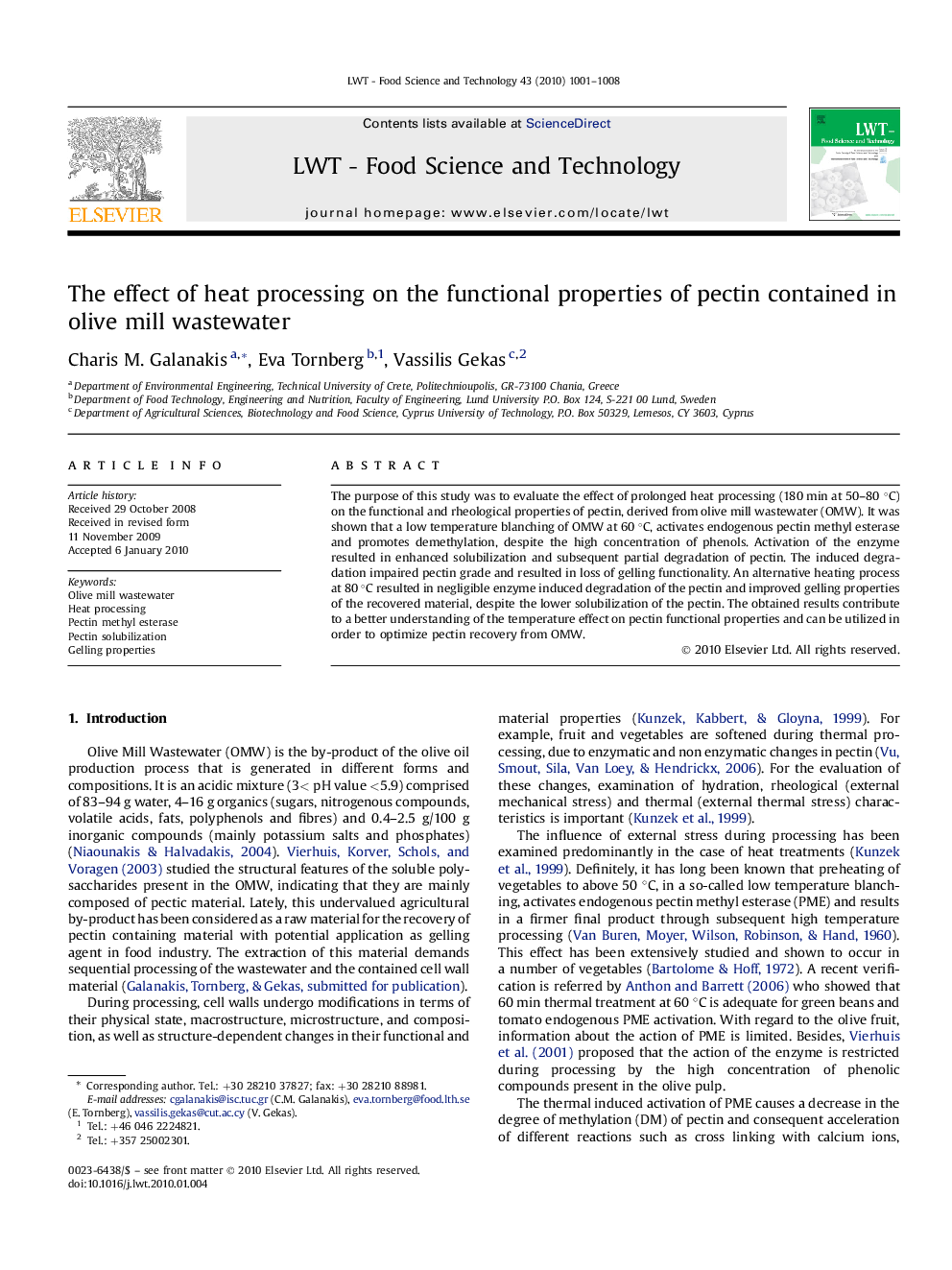| Article ID | Journal | Published Year | Pages | File Type |
|---|---|---|---|---|
| 4564505 | LWT - Food Science and Technology | 2010 | 8 Pages |
The purpose of this study was to evaluate the effect of prolonged heat processing (180 min at 50–80 °C) on the functional and rheological properties of pectin, derived from olive mill wastewater (OMW). It was shown that a low temperature blanching of OMW at 60 °C, activates endogenous pectin methyl esterase and promotes demethylation, despite the high concentration of phenols. Activation of the enzyme resulted in enhanced solubilization and subsequent partial degradation of pectin. The induced degradation impaired pectin grade and resulted in loss of gelling functionality. An alternative heating process at 80 °C resulted in negligible enzyme induced degradation of the pectin and improved gelling properties of the recovered material, despite the lower solubilization of the pectin. The obtained results contribute to a better understanding of the temperature effect on pectin functional properties and can be utilized in order to optimize pectin recovery from OMW.
